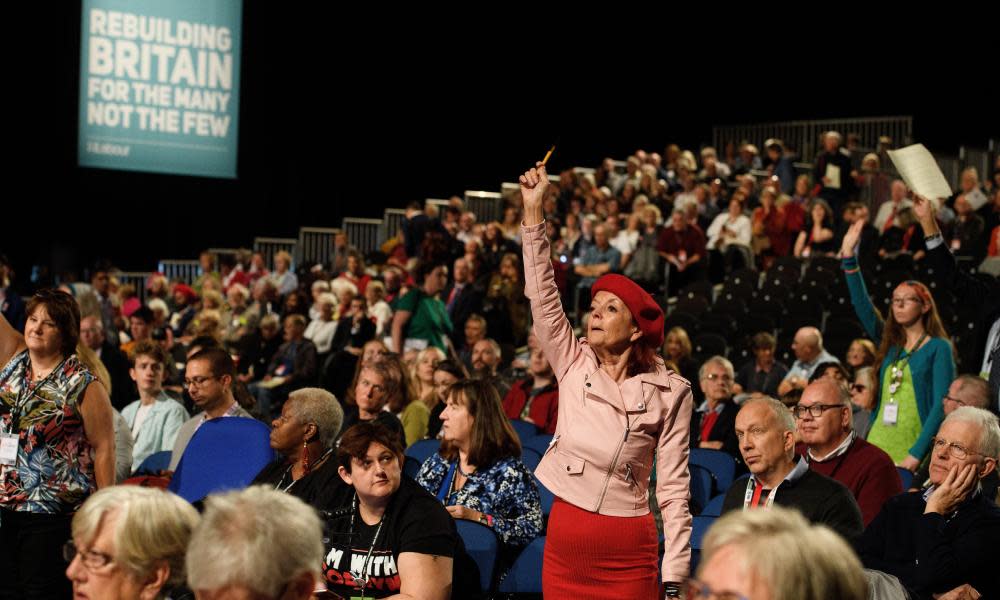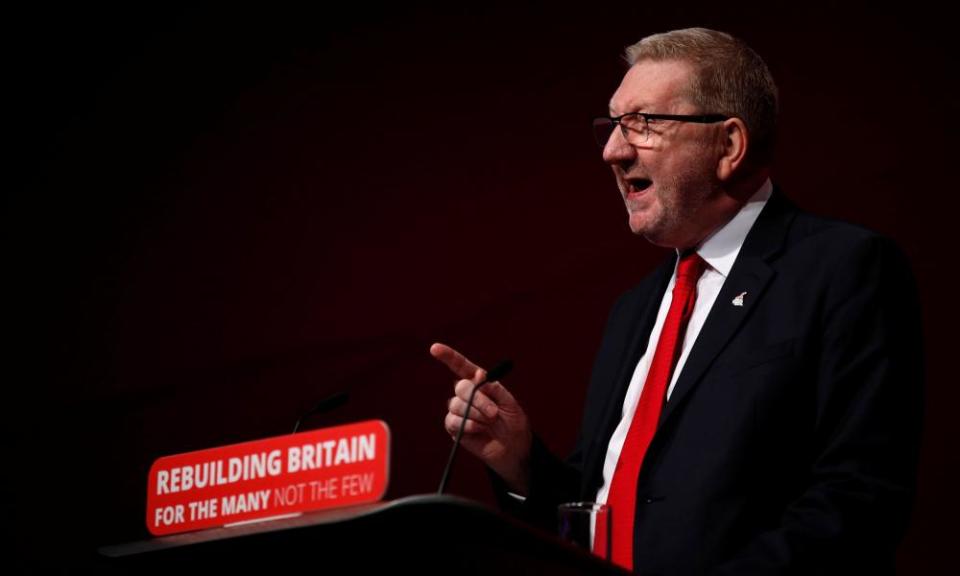Labour's left divided against itself over reselection reforms

It is a sign of the left’s absolute dominance in the Labour party that the talk of this year’s conference in Liverpool is no longer of the tensions between Corbynites and centrists, but between the trade unions and party members.
On Monday, the party agreed sweeping reforms to MP selections, making it far easier for party members to deselect their MPs, though stopping short of mandatory reselection.
Announcing the result in the conference hall, Unison’s Wendy Nichols, a member of Labour’s ruling national executive committee (NEC), had to make the extraordinary appeal for delegates not to jeer or boo.
The reform was a compromise backed by the leadership and trade unions, but for many members and for the grassroots group Momentum, it did not go far enough. Their demand is for sitting MPs to face a full, open selection process against rival candidates, at every general election.
Privately, many unions have been uneasy about such radical reforms, arguing it would diminish the influence of local trade union branches.
Signs of the division had been brewing for some months. Momentum, which worked closely with the unions during Jeremy Corbyn’s leadership campaigns, caused angst for the leadership during the race for the role of Labour’s general secretary.
Its founder, Jon Lansman, flirted with running for the role, before backing down in the face of strong support from the Labour leadership for Unite’s Jennie Formby, the first time tensions between the two party power bases had been publicly exposed.
Over the past week, anger has been growing over reforms as Labour finalised its “democracy review” of party structures.
Still, Momentum’s leadership were blindsided by last-minute changes agreed by the five big unions ahead of the party conference, effectively giving unions a much bigger say over future leadership candidates. In response, Momentum mobilised tens of thousands of members to email members of Labour’s ruling body voicing their opposition to the change.
“We had no idea it was coming,” a Momentum source said. “It was literally the night that the papers for the NEC meeting dropped that we realised what was going on.”

In the end, the changes were watered down, but the grassroots group said it was “deeply disappointed” that local parties were not given a bigger role in choosing candidates.
Unite agreeing to back the compromise proposals on MP selections, when its official policy is to support mandatory reselection, was a particular surprise to many members. The union’s general secretary, Len McCluskey, said he had agreed to back the gentler reform, which he said was supported by Corbyn, for the sake of party unity.
Yet in Liverpool, members’ anger was laid bare. Party members who had hoped for sweeping reforms booed and shouted “shame” at union delegates.
McCluskey said he was shocked, warning that scenes of division would play into the hands of Labour’s critics. Senior members of Unison and GMB, the two other largest unions, also said they were deeply concerned.
The fury on the conference floor went far beyond what Momentum had publicly endorsed. One union source described the membership as “unbiddable”, even by Momentum.
Signs of that had emerged when significant numbers of Labour members voted in large numbers to elect the leftwing veteran Peter Willsman to the NEC, even though Momentum had dropped him from its slate after he made controversial comments about Labour’s antisemitism crisis.
On Monday, a swathe of the membership rebelled against Momentum’s advice to vote through the compromise reforms to MP selections. The grassroots group said any other course of action would risk the possibility of no reform at all.
But many local party delegates ignored that instruction and voiced their dissent anyway, with 35% voting against the selection reforms.
At the Momentum festival, The World Transformed, on Sunday night, Lansman was heckled by the audience. Himself a member of the NEC, he said it was a split he had not wanted to see.
“Frankly, I am very unhappy with it,” he said. “But I did not want to show disloyalty to the leadership. Personally, I don’t think Len McCluskey is happy about it.
“But the unions approved the package. Basically, the trade unions blocked it [mandatory reselection]. One trade union in particular, which has a policy in favour of mandatory reselection. Unite, basically. The truth is the leadership and leader’s office were involved in blocking it.”
In the Red Pages pamphlet handed out to delegates on Monday morning, the compromise reforms were called “a dark day of betrayal and climbdowns”.
The group pointed the finger at both McCluskey and Lansman for the compromise, saying they “let their members down”.
Senior figures in the unions and in Momentum are privately worried about the split and will attempt to de-escalate tensions over the coming days. “I’ve never seen polarisation like it,” one Momentum source said.
“This is not a situation anyone would desire. At the end of the day, all we want is for members to have parity of influence, and if there’s one grouping in the Labour party which really has disproportionate influence compared to their size, it’s members of parliament.”

 Yahoo News
Yahoo News 
